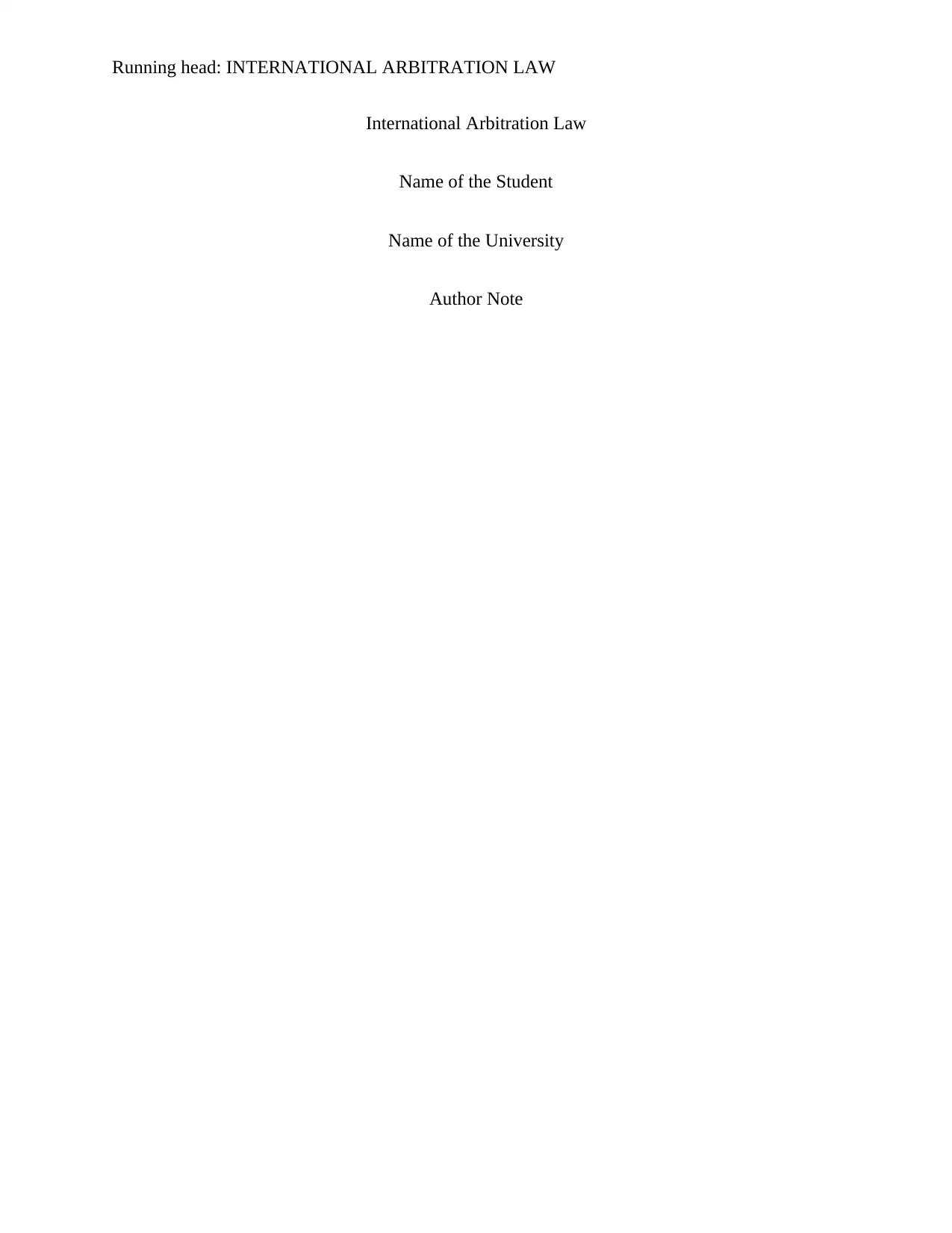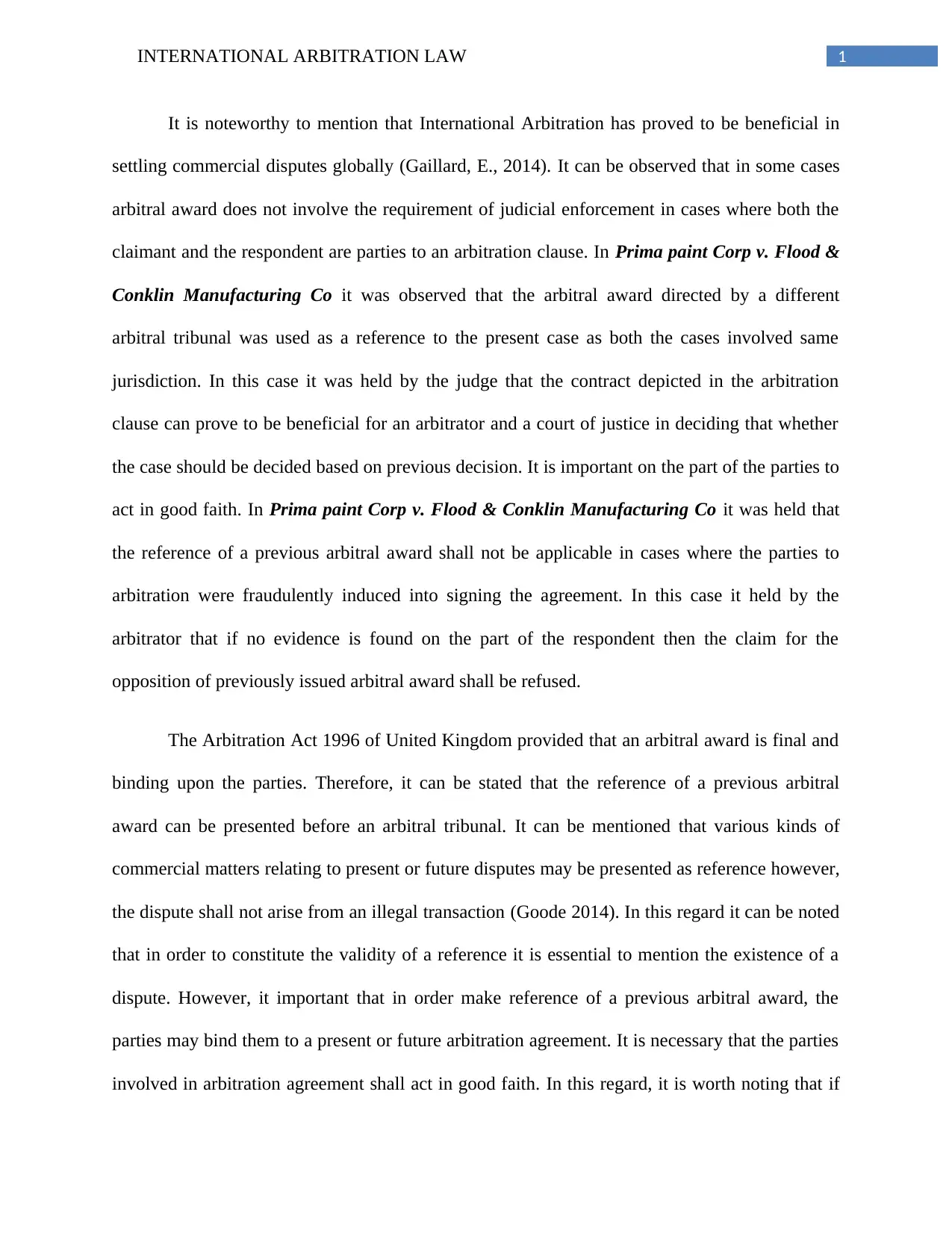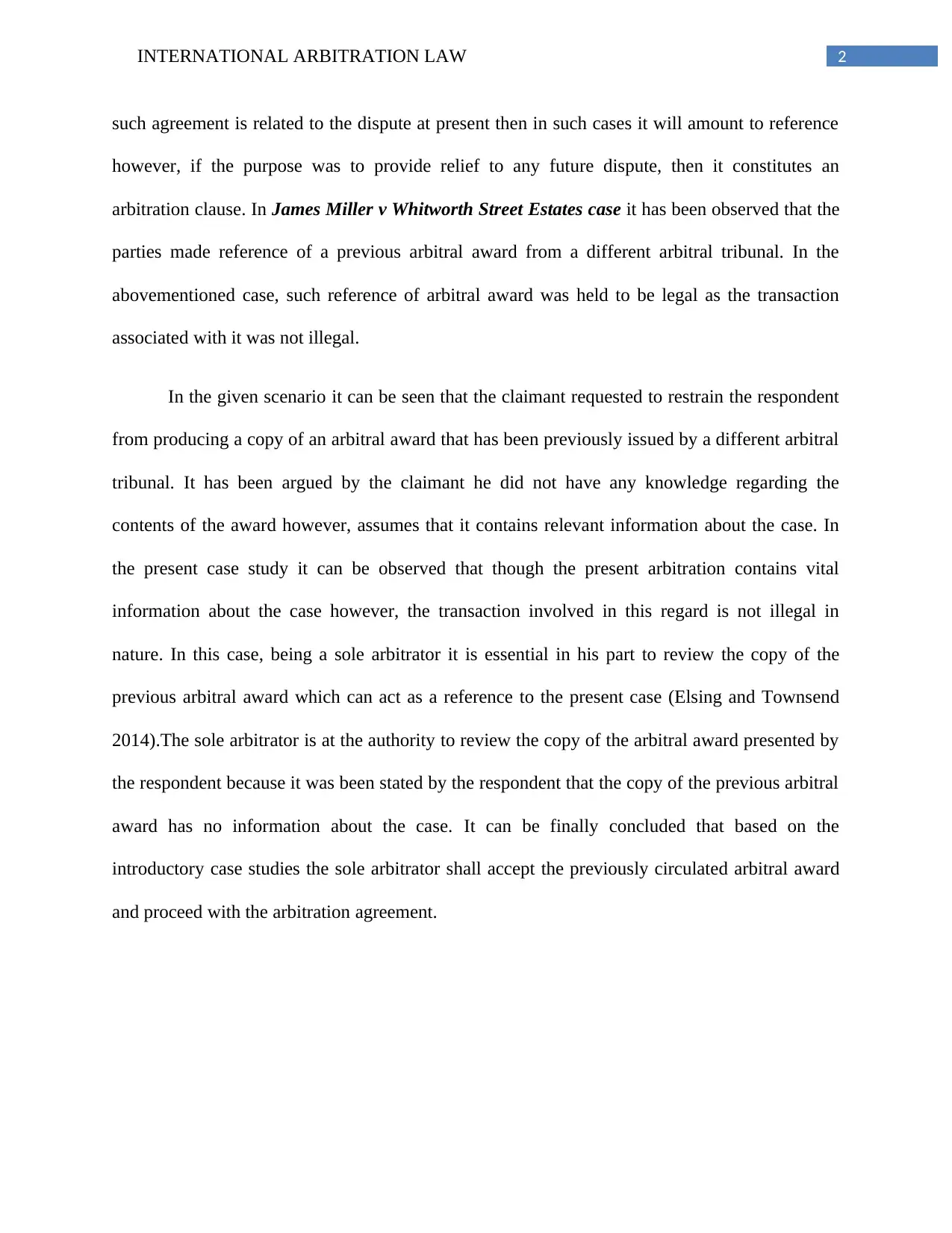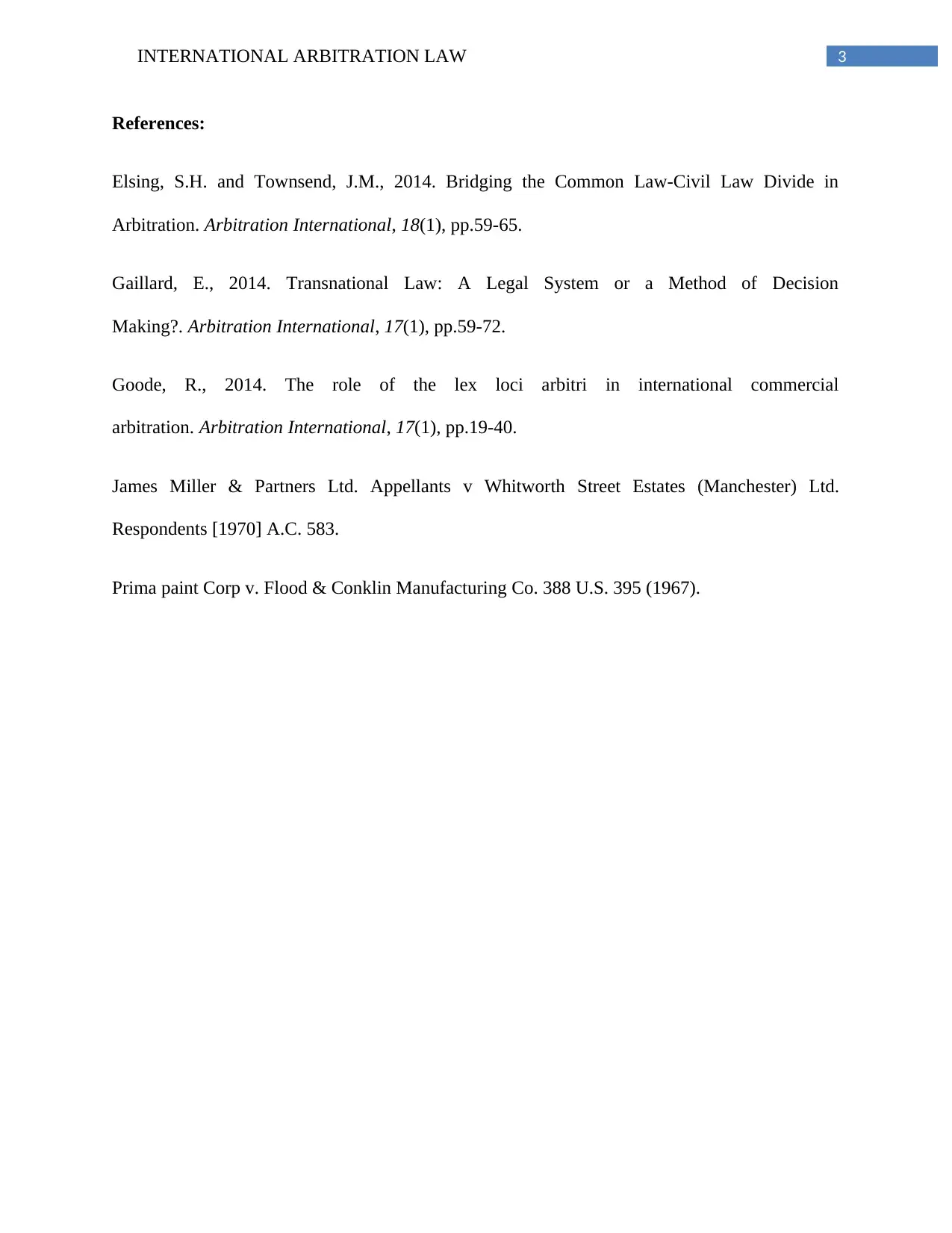International Arbitration Law: Analyzing Award References Case Study
VerifiedAdded on 2021/04/24
|4
|847
|57
Case Study
AI Summary
This case study delves into the complexities of international arbitration law, focusing on the use of previous arbitral awards as references in subsequent cases. It examines the legal principles established in cases like Prima Paint Corp v. Flood & Conklin Manufacturing Co. and James Miller v Whitworth Street Estates, highlighting the importance of good faith and the validity of arbitration clauses. The analysis explores how arbitral tribunals and courts of justice consider prior decisions, emphasizing that the reference of a previous award is permissible if the underlying transaction is legal and the parties are bound by an arbitration agreement. The study concludes that in the given scenario, the sole arbitrator should accept the previously circulated arbitral award and proceed with the arbitration agreement, providing a comprehensive understanding of how previous awards can influence the resolution of international commercial disputes.
1 out of 4










![[object Object]](/_next/static/media/star-bottom.7253800d.svg)